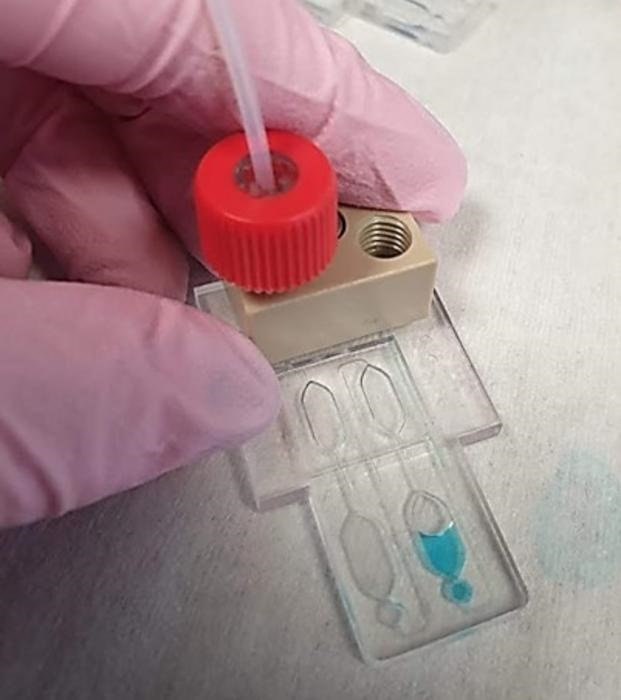New Identification Method for Cancerous DNA to Reduce Need for Painful Biopsy Surgery
Posted on 09 Sep 2024
Currently, most cancer patients must undergo an invasive and expensive surgical biopsy to remove a tissue sample from their tumor to determine the best treatment options. However, all individuals have small amounts of DNA that circulate freely in their blood, which is not confined within blood cells. In cancer patients, some of this circulating free DNA (ctDNA) originates from their tumors. This ctDNA differs from their normal circulating DNA as it carries mutations that have turned these cells from healthy to cancerous. Thus, ctDNA can provide insights into the cancer's characteristics and indicate which treatments might be most effective. Existing methods to analyze ctDNA are hampered by its low abundance and the presence of a larger quantity of non-cancerous DNA in the blood samples.
Researchers at Heriot-Watt University (Edinburgh, UK) are now developing a novel method to identify cancerous DNA that could reduce the need for painful biopsies. This new technique, known as SNARE, aims to simplify the processing of blood samples to enhance the detection and characterization of cancerous DNA. The team is working on creating both robotic benchtop systems and microfluidic platforms (similar to certain types of lateral flow tests) and will evaluate these methods using blood samples from breast cancer patients to achieve more sensitive ctDNA detection and reduce the need for expensive DNA sequencing.

In patients with advanced-stage cancer, significant amounts of DNA in the bloodstream can often be detected, but by this stage, it is frequently too late for a cure. On the other hand, in early-stage cancer patients, where treatment success rates are higher, over 99% of the circulating free DNA typically originates from healthy cells, complicating the identification of cancerous mutations. The Heriot-Watt research team plans to further develop MicroSNARE, which they have already tested in the lab, with the aim of diagnosing, analyzing, and characterizing tumors at an earlier stage. They also aim to detect cancer recurrence before it can progress and spread. MicroSNARE promises a groundbreaking, less invasive approach to cancer detection, potentially enabling earlier diagnosis and intervention.
Related Links:
Heriot-Watt University













